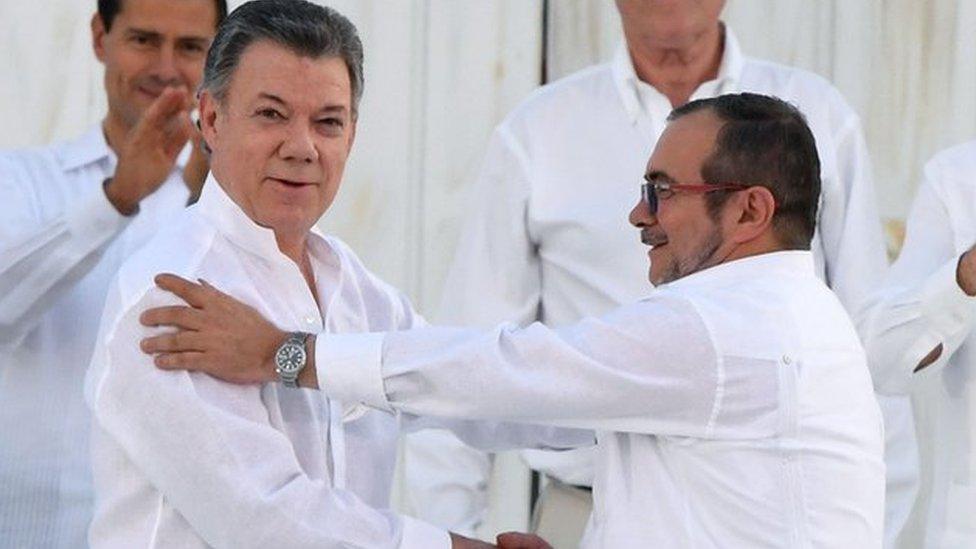Colombia Farc leader apologises to victims at peace signing
- Published
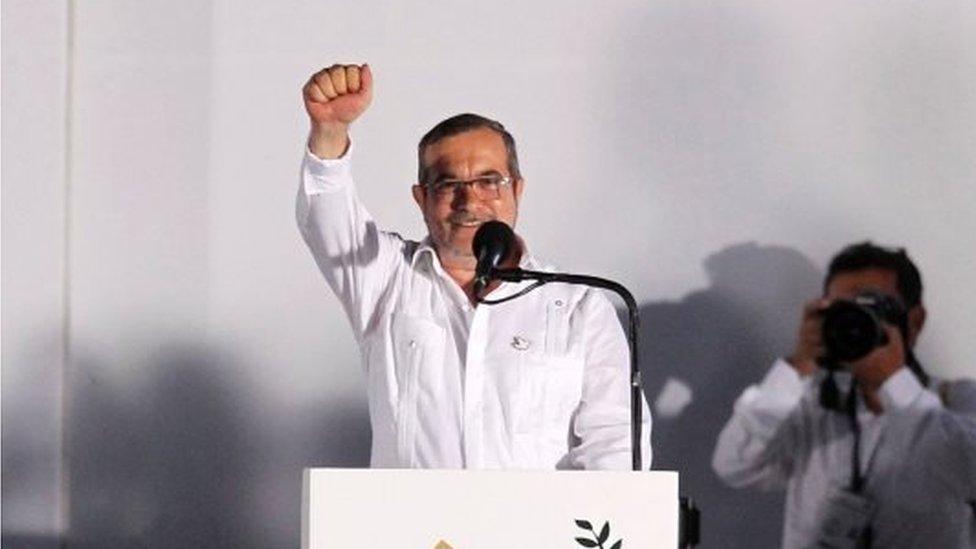
Farc leader Rodrigo Londono, better known as Timochenko, apologised to the victims of the conflict
The leader of the Farc rebel group has apologised to the victims of Colombia's armed conflict which ended with Monday's signing of a peace deal.
Colombian leader Juan Manuel Santos and the Farc rebel commander known as Timochenko signed the deal in an emotional ceremony on Monday evening.
"I would like to ask for forgiveness for all the pain that we may have caused during this war," he said.
The guests at the ceremony in Cartagena cheered when Timochenko apologised.
Some shouted "Yes, we can!" while Farc members and heads of state from Latin America rose to their feet on the stage and applauded.
The ceremony which marks the end of 52 years of armed conflict was broadcast live and shown on giant screens in the capital, Bogota, and other large cities.
Farc rebels gathered in a number of camps also followed the broadcast.
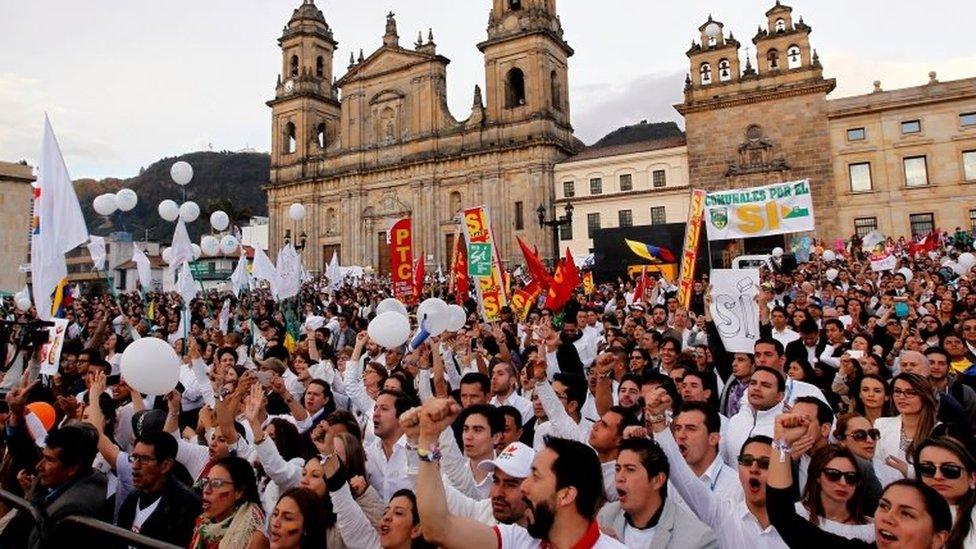
Colombians gathered in Bolivar Square in Bogota to watch the ceremony on a giant screen
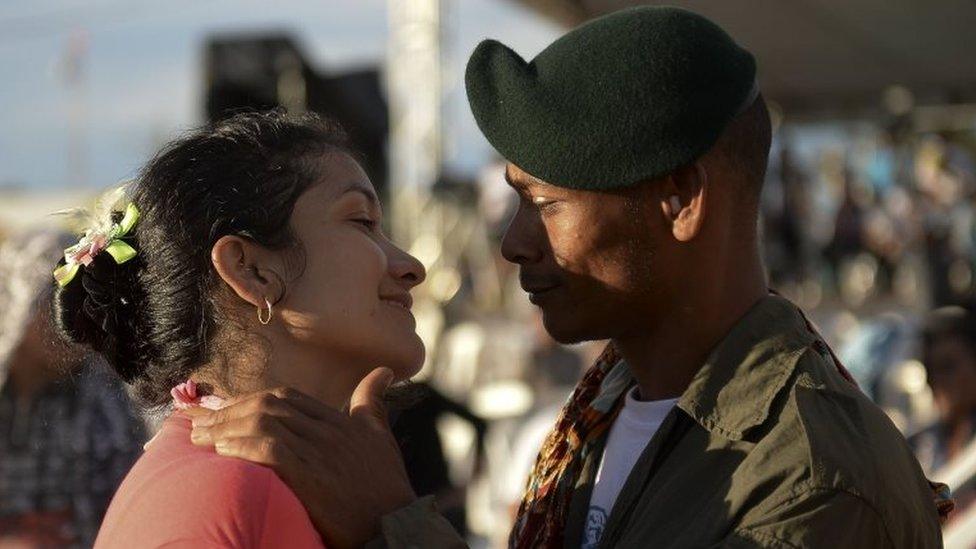
Farc rebels gathered in El Diamante camp in Caqueta province to watch the broadcast
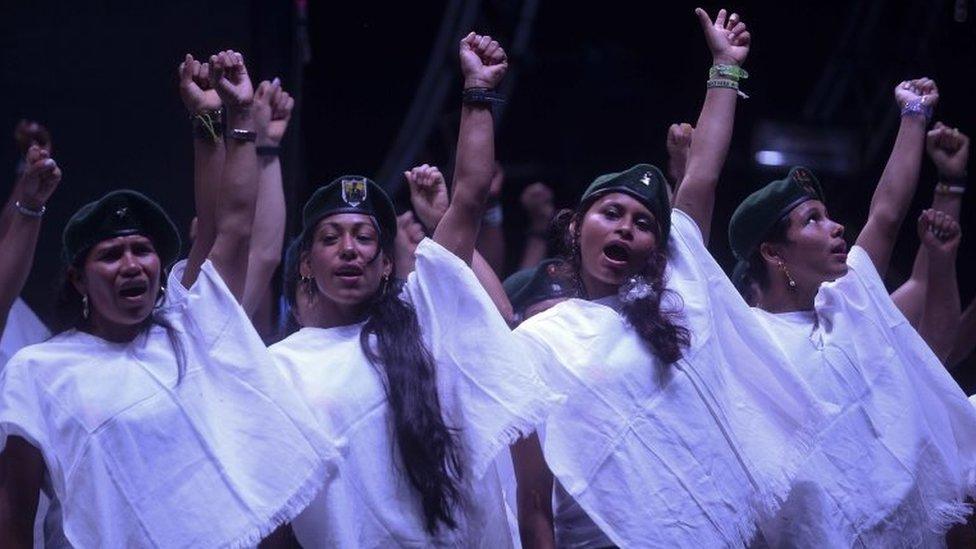
A rebel choir sang in El Diamante to celebrate the signing of the deal

Analysis, by the BBC's Lyse Doucet in Cartagena:
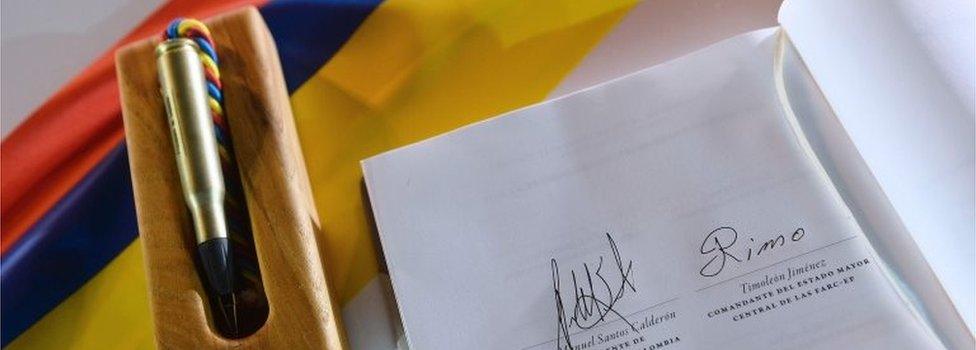
A pen made from a bullet was used to sign the agreement
There was so much symbolism in this historic signing - a pen made from a bullet to sign the peace deal, the singing of Beethoven's Ode to Joy, everyone dressed in white.
President Santos said this historic moment was a message from Colombia to the world: no more war. "No more war," the crowd chanted in return.
This was the first time Timochenko addressed the nation live on TV. He promised the Farc would give up its guns, and more than that, he asked for forgiveness.
It earned him a standing ovation. That would have been unthinkable not long ago.
But after 50 years of war, many Colombians still aren't ready to forgive. As President Santos put it, the hard work of building peace now lies ahead.

'Welcome to democracy'
Under the deal, the Farc will now become a political party.
The rebels will take part in legislative elections in 2018, and - as part of the peace deal - they will be guaranteed a minimum of 10 seats in Congress for their first two legislative periods.
President Santos addressed the Farc rebels directly and praised their decision to lay down arms.
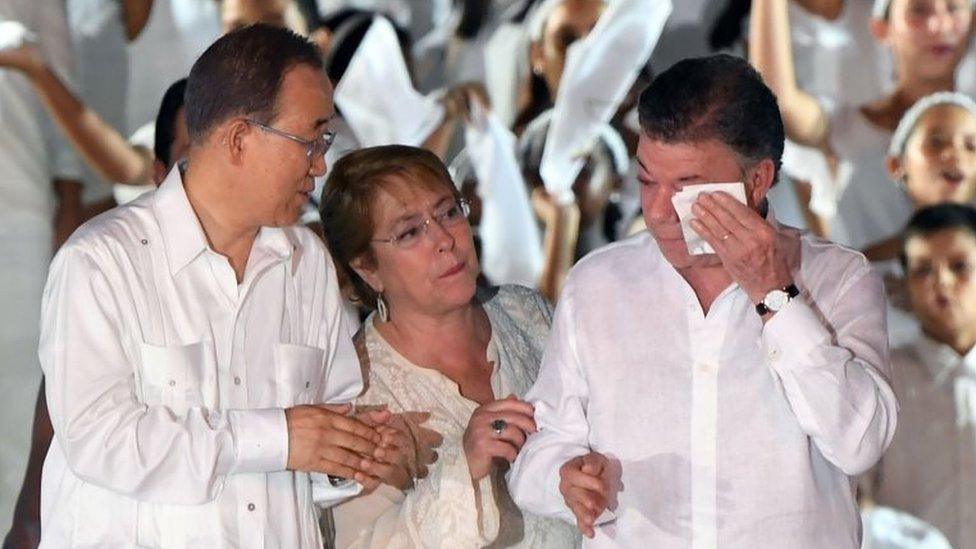
President Santos (right) was overcome with emotion at one point during the ceremony
"Swapping bullets for votes and weapons for ideas is the bravest and most intelligent decision that any rebel group could take," he said.
"When you begin your return to society (...) as head of state of the homeland that we all love, I welcome you to democracy."
Timochenko said that the rebels would not take up arms anymore.
"War is over, we're starting to build peace," he said before his speech was interrupted by the sound of Colombian Air Force fighter jets flying over the venue.
Looking up startled, Timochenko's worried expression then turned into a smile and he joked: "Well, this time they came to pay their respects to peace and not to drop bombs."
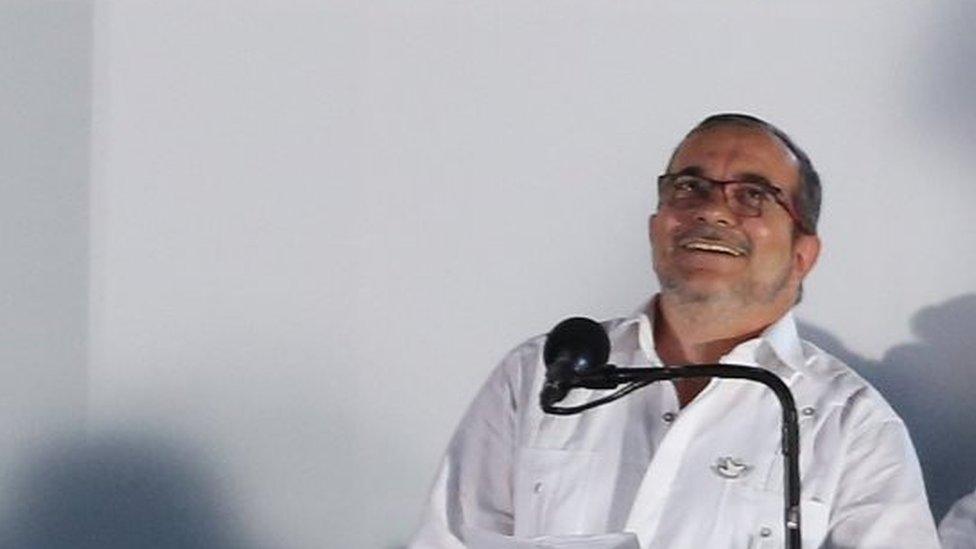
Timochenko smiled after he realised the fighter jets were not a threat
A number of Farc leaders, such Raul Reyes and Mono Jojoy, were killed in bombing raids over the past decade.
Public vote
The peace deal was reached after four years of formal peace talks in the Cuban capital, Havana, which were preceded by two years of secret talks.
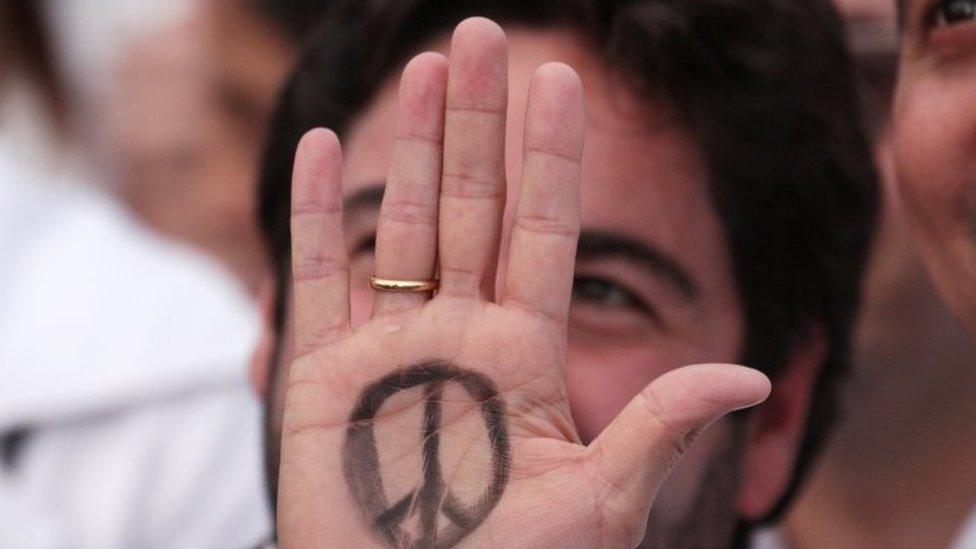
Colombians will be asked to reject or accept the deal in a public vote on Sunday 2 October
But before it can come into force it will have to be approved by Colombians in a public vote scheduled for Sunday.
While recent polls suggest that a majority of Colombians back the deal, there has been vocal opposition to the agreement.
Those in the "no" camp, which is led by former President Alvaro Uribe, say that they do not trust the Farc to stick to their promises.
They are also angry that Farc leaders will be entering Congress without serving time in jail for crimes committed during the conflict.
President Santos has stressed that there is "no Plan B". He said that if the Colombian people were to reject the peace deal, the country would face more conflict.

The Farc's 52-year fight

1964: Set up as armed wing of Communist Party
2002: At its height, it had an army of 20,000 fighters controlling up to a third of the country. Senator Ingrid Betancourt kidnapped and held for six years along with 14 other hostages
2008: The Farc suffers a series of defeats in its worst year
2012: Start of peace talks in Havana
2016: Definitive ceasefire

- Published27 September 2016
